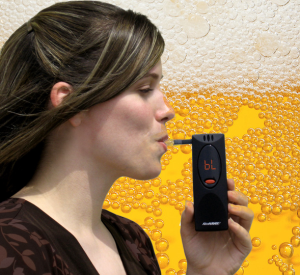Clarksville TN Attorney | Turner Law
Blood Alcohol Content (BAC) Testing In Tennessee
 Nowhere in the United States is it legal to operate a vehicle under the influence of alcohol or drugs. Tennessee is no exception, and state authorities are getting stricter and stricter every year with DUI (Driving Under the Influence) charges. Police officers are required to observe and interfere when suspicious of a potentially intoxicated driver. If you are driving negligently or unreasonably, even if you are not intoxicated, an officer still has the right to administer a Blood Alcohol Content (BAC) test in order to determine sobriety.
Nowhere in the United States is it legal to operate a vehicle under the influence of alcohol or drugs. Tennessee is no exception, and state authorities are getting stricter and stricter every year with DUI (Driving Under the Influence) charges. Police officers are required to observe and interfere when suspicious of a potentially intoxicated driver. If you are driving negligently or unreasonably, even if you are not intoxicated, an officer still has the right to administer a Blood Alcohol Content (BAC) test in order to determine sobriety.
Stages Of Impairment
Impairment from alcohol and drugs has been legally narrowed down to five “ranges” of BAC. The first, 0.01%-0.02% is when few symptoms of alcohol consumption are exhibited by a driver. It’s acceptable to drive with a BAC that falls under this range, unless the driver is under the legal age drinking age. Subtle signs of impairment appear when BAC is recorded at 0.03%-0.05%. Again, still OK to drive – but it’s pushing it. Commercially licensed drivers are stopped at this range, their limit falling at 0.04%.
A person is “driving under the influence” when blood alcohol content is at or above 0.08%. From 0.06%-0.09%, reasoned thought processes and depth perception are both compromised. Beyond this point, driving is definitely unacceptable: 0.10%-0.19% translates to dramatic decreases in motor skills and reflexes, with a strong likelihood of emotional unpredictability; while 0.20%-0.29% (the final recognized BAC range) typically means consciousness has been lost or impairment is obvious.
Types Of BAC Tests
- The urine test is by far the least common sobriety assessment administered when a driver is pulled over for suspected DUI. It’s inconvenient and easy to argue against – a driver might not “have to go to the bathroom.”
- Breath tests are used regularly by Tennessee police officers. If you’re pulled over, you’ll be asked to breathe air into a machine that provides an immediate approximation of your blood alcohol content.
- Blood tests are often administered when it’s unclear whether the results of the breath test were accurate. This is the second most common form of testing, and an officer can request blood during a roadside sobriety test without the risk of incapability accompanied by urine assessments. This is the most precise method.
Legal Representation For DUI In Nashville
Contact Turner Law Offices, P.C. if you are facing charges for driving under the influence of alcohol. If the arresting officer administer a BAC test and you believe that the results were inaccurate, then you have the right to legal process. You’re far more likely to succeed in such efforts with the help of an experienced attorney, and our team has years of experience working with Tennesseans saddled with expensive DUI charges. Call today, or go online to contact one of our skilled lawyers who can help you seek justice.
- Log in
- Entries RSS
- Comments RSS
- WordPress.org
Designed by InkThemes.com




